The Love Story of François and Christine Coillard
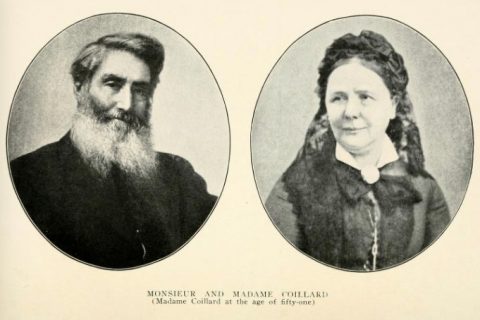
"'Thenceforth their life was an unbroken idyll of thirty years," says her niece. "Of their mutual happiness it seems almost sacrilege to write, yet something must be said of a union so perfect begun in circumstances so unusual. Knowing that it was not self-will, but God's Providence, that had brought them together, each accepted the other with absolute confidence, as a gift from Him, and hence as one to be cherished and held sacred for the sake of the Giver. The changes and trials of their career only served to bring out fresh perfections in each other's eyes, so that their whole married life was one long series of delightful surprises, a never-ending romance."
Introduction
François Coillard (1834 -1904) was a French missionary who worked for the Paris Evangelical Missionary Society in southern Africa. He was first assigned to what is now Lesotho, arriving in 1857. From there he went to Leribe. In 1861 he married Christina Mackintosh who was the daughter of a Scottish Baptist minister and was five years older than her husband. They never had any children, serving together for 30 years. "They sacrificed Europe, a house of their own, vacations, privacy, education, beautiful things--virtually everything they enjoyed--for the sake of a dangerous and too often unrewarding mission work. They lived in poverty. Christina made their home in a wagon much of the time. They were imperiled by war, disease, insects and threats of torture and death at the hands of violent chiefs. Torture was no idle threat. Day after day they witnessed examples coupled with savagery so dreadful they could barely hint at its horror in their letters home." But they thrived just the same, and had a wonderful marriage. You will love reading about how God brought them together in the story that follows.
Francois and Christine's Love Story
Belle Brain
WHEN Francois Coillard reached Leribe, Africa, in 1859, clean-shaven and unmarried, the Basutos were greatly perplexed. Could this beardless, wifeless youth be the missionary they were expecting? He was nothing but a boy!
"What could he teach?" asked the women drawing water from a little well at the close of his first day among them. "He is a young man; he has neither a wife nor a beard."
But his case was not hopeless. There were remedies for defects such as these. Coillard heard what was said, and in a very short time had grown a beard which raised him immeasurably in the eyes of the natives. He thus quickly and easily acquired one of the marks of a man among the Basutos. Would he ever acquire the other? This was a question the young Frenchman was ever asking himself.
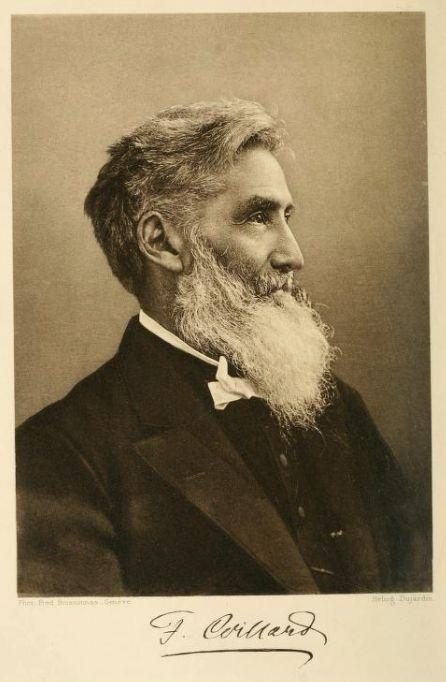
Coillard was not without a wife because he did not want one. When the Paris Missionary Society assigned him to a lonely pioneer post, he knew he would need a woman's care and companionship. But his reverence for womanhood was so great that his ideas of matrimony were so high and exalted that he was unwilling to marry merely for the sake of comfort and companionship. He wanted a'' wife from the Lord'' and was willing to wait until the Lord sent her.
One evening, not long before he sailed in 1857, he thought he had found her. He had gone, as he frequently did, to the home of the rich and pious Madame Andre-Walther, then the rendezvous of all Protestants of note in Paris. In her brilliantly lighted salon, crowded with students and professors, deaconesses and court ladies, he was presented to a newcomer among them, Miss Christina Mackintosh by name, who had come over from Scotland to assist her sister, Miss Kate, who had been teaching for two years in Paris.
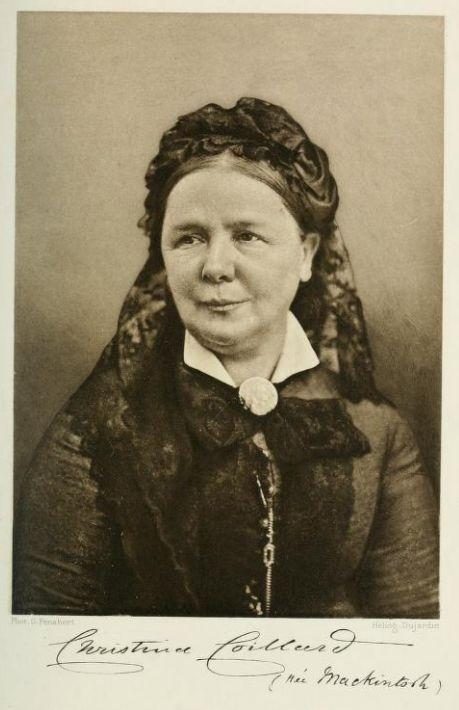
From the moment they met Coillard knew that Christina Mackintosh was the wife that he wanted. But he said nothing to her. There was no time for their acquaintance to ripen into even an ordinary friendship, and he feared to act on such a sudden impulse lest it be a mere human desire, and not "of the Lord." So he sailed away without revealing the hope in his heart that some day she would come to Africa and share his work for the Basutos.
The foundations of his hope were very slight. There was no ground for it whatever save that he knew her heart was in the mission field. "When little more than a child, she had resolved to be a missionary to Africa. But this purpose had lain dormant until an address of his own, which she had heard soon after coming to Paris, revived it again.
Nevertheless the vision went with him. Throughout the long journey by sea and by land the conviction steadily grew that she was The One. At length, in obedience to what he believed to be divine guidance, he wrote from Africa, offering her his heart and his hand. In the orthodox fashion of France, the proposal was made through their mutual friend, Madame Walther.
Six months passed and then came her answer —a refusal on the ground that she did not know him well enough! This was true. Yet had it not been for the storm of opposition it raised, her answer might have been different. She had heard God calling her to Africa, and she had seen enough of Coillard to know that he was one of the noblest and most lovable of men.
Her sister Kate alone favored her going. She had known Coillard in Paris, and felt that it was an honor for her sister to be asked to share the life of this heroic young missionary. But every one else was opposed to it. Her mother refused to entertain the idea, and Coillard's friends, as well as her own, expressed their disapproval very frankly. She was implored not to bury her talents in Africa, and he was warned that a young woman who was more at home in the class-room than the kitchen would be a hindrance instead of a help. So Christina, strong and self-reliant though she was, yielded to the opposition and stayed at home. But from now on she devoted every spare moment to work among the poor—to quiet her conscience, perhaps.
It was a sore disappointment to Coillard, and a great test of his faith. He had been so sure she would come. But it was all a part of God's plan. At this time Coillard was somewhat lacking in self-confidence, and much too dependent on human sympathy and help. But now, alone with the heathen, he learned to find God all in all. It was a sore experience, but it gave him new beauty and strength.
But it was hard. Entries in his diary and letters to his mother show how intensely he suffered from isolation among a people entirely heathen. The loneliness was almost unbearable, and added to it were the burdens of housekeeping, with no help save from careless and incompetent natives, who spoiled his food and smashed his dishes.
For two years Coillard worked on alone, one of the world's real heroes. He put away all thought of marriage, yet ever and anon there came to him the vision of a face with sparkling eyes—not beautiful, perhaps, but calm and restful and full of resolute purpose. He could not banish it, do what he would, and it filled him with longing. It was the face of Christina, the girl who would not come.
Did she ever think of him, alone in Africa, and suffering so? Had she ever regretted the answer she gave? Would it be any use to ask her again? He needed her so much, and so did the work! What could he not do with her to help him! At length, having sought counsel of God, he wrote again, and this time the answer was different.
Christina now perceived that it was God who was calling her—that this twice-repeated offer of marriage was her opportunity for fulfilling her early vow to be a missionary. Viewed in this light, she dared not decline it. So she wrote she would come.
There was opposition still, but not from those nearest and dearest. God had been working in her mother's heart, and she was now able to make the sacrifice with joy. "I would rather see my daughter a missionary than a princess," she wrote to her soon-to-be son-in-law.
Coillard's cup overflowed when he received Christina's acceptance. "I cannot believe in my own happiness," he wrote in his diary on July 5, 1860, the day her answer arrived. It had a good effect, too, on his work. "Molapo, now he knows I am going to be married, acquaints me with all his affairs, and demands my advice," he wrote of the chief a month later.
""I have come to do the work of God with you, whatever it may be; and remember this: wherever God may call you, you shall never find me crossing your path of duty."
Knowing how much she was needed, Christina resolved to sail for Africa before the end of the year. On July 5, the very day her letter reached Leribe, she left Paris and started for Scotland to prepare for the wedding. "It was a terrible wrench to leave everything dear to her," says her niece. "She had no illusions as to what kind of a life awaited her, and it was not the kind she liked. She preferred civilization to the wilds."
Coillard knew something of what it was costing and was full of tenderest sympathy for her. "I do not know that I could do what you are doing," he wrote her, "giving up all for an unknown country and an almost unknown husband."
The knowledge that it was God's will alone sustained her. This also Coillard knew and appreciated. ''How happy I am,'' he wrote later, "to see that you perceive clearly the will of God in our union. Later on that will be a source of strength and comfort. For in the days of disappointment and trial, when Satan will whisper, 'What are you doing here?' you will be able to answer, 'God, my God, bade me go, and I have obeyed.' May I, by my constant love, fill all the empty places in your heart."
Of her letters to him at this time only one has survived. One passage in it shows how eagerly she welcomed anything that added to the tie between them. "What do you say, dear Frank, to this letter all in English?" she wrote. "It would have been sad for me to write you in a foreign language from home, for I cling so to your having this at least in common to those dear to me, that you understand their tongue as well as your own."
In the autumn Christina went to Asnieres in France to make the acquaintance of Coillard's mother, to whom he was devotedly attached. During this visit, which ever remained a precious memory to both, Madame Coillard gave her a packet of Francois' letters to read—letters which revealed the depths of love and tenderness in his nature, and showed how much he had suffered without her in Africa. These, more than anything else, braced her for the coming ordeal of breaking home ties. "What gave you such a happy thought?" Coillard wrote to his mother. "Not that my letters are worth much, but because they could cheer my betrothed amid all the sorrows of parting, by assuring her that an affectionate son would not be on unloving husband."
On November 23, 1860, Christina sailed for Africa on the John Williams. "Such grief I never saw, and can hardly bear to think of now," her sister wrote forty-five years after. But the peace of God soon filled her heart.
Meanwhile, in Africa, Coillard's people were awaiting her coming with a joy scarcely less than his own. "To-day you are a man," they said, when he started to the Cape to meet her. "Return quickly and bring us our mother and the mother of our wives!"
Through a misunderstanding, due to a mix-up in the mails, Coillard went to Port Elizabeth, whereas Christina landed at Cape Town. Without waiting for a boat to take him around by the sea, he started in hot haste across country. There was some little danger involved, but he cared nothing for this. It saved so much time! But when the news of his break-neck journey reached Paris, the Director sent him an official rebuke "for risking his life to save a few days' time in what was not strictly the business of his calling"—a rebuke tempered, however, by an unofficial postscript saying that he was "happy all the same to have such proof that chivalry was not yet dead among the sons of France!"
Christina's first words to her lover were the heroic ones that formed the key-note of all her after life. "I have come," she said, "to do the work of God with you, whatever it may be; and remember this: wherever God may call you, you shall never find me crossing your path of duty."
The wedding took place on February 26,1861, in the Union Church at Cape Town. Immediately after, Monsieur and Madame Coillard began their long wedding journey to their distant field. It was accomplished in the regulation, slow-going, South African ox-wagon, but Christina, knowing her husband's intense love of the beautiful, had bent all her energies toward making it pretty and homelike. He was delighted, and wrote to her sister,'' Every one is astounded in admiring the taste that has decorated it. People can't believe it is a traveling wagon, it is so fresh and mignon, with its pretty curtains, its elegant pockets hung on either side, the leopard skin, the plants, etc., the whole forming, one would think, the eighth wonder of the world."
Christina was very happy all the way up from the Cape. The devotion of her husband, the beauty of the scenery, and the warm welcome of the missionaries through whose stations they passed, made the journey a joy. But after a few weeks at Leribe, homesickness and the change in climate combined to make her ill, and she grew listless and weary. During the day she bravely kept at her work, but in the evenings she sat pouring over old letters and journals that made the tears flow very fast. But one day, when alone in the house, she suddenly realized that this was all wrong, and, gathering up the precious memorials of the past, she threw them into the fire! When her husband returned, she met him at the door, saying,'' I have burnt them all. You shall never see me fretting again. Forget thine own people and thy father's house!"
''Thenceforth their life was an unbroken idyll of thirty years," says her niece. "Of their mutual happiness it seems almost sacrilege to write, yet something must be said of a union so perfect begun in circumstances so unusual. Knowing that it was not self-will, but God's Providence, that had brought them together, each accepted the other with absolute confidence, as a gift from Him, and hence as one to be cherished and held sacred for the sake of the Giver. The changes and trials of their career only served to bring out fresh perfections in each other's eyes, so that their whole married life waa one long series of delightful surprises, a never-ending romance."
To their sore disappointment God gave them no children. But the withholding of this served only to draw them closer together, and to enable them to give themselves wholly to Africa.
For thirty years they worked hand in hand, he a hero and she a heroine of no common sort. When he went on long exploring tours into the wilderness, his wife went with him doing her share of the work and supplying the neatness, the cleanliness, and the touches of beauty that meant so much to one of his highstrung, sensitive nature.
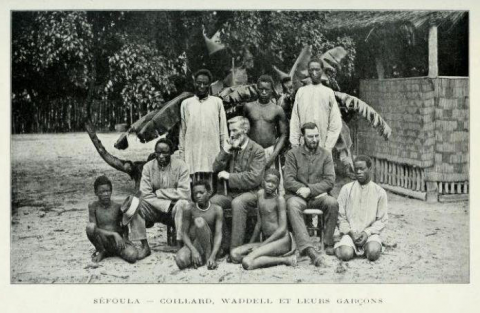
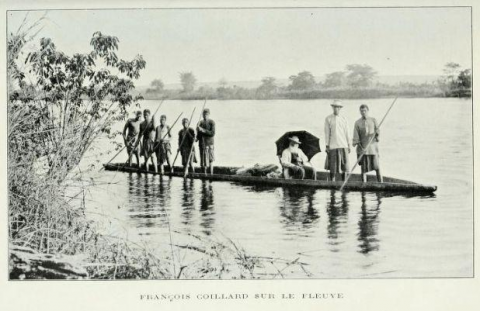
In God's arithmetic one and one make more than two. "One man shall chase a thousand, and two shall put ten thousand to flight." Never was this truer than in the case of the Coillards. Either alone would have made a great missionary. Together they accomplished a work for Africa that was great beyond measure.—Belle Brain, The Love Stories of Great Christians